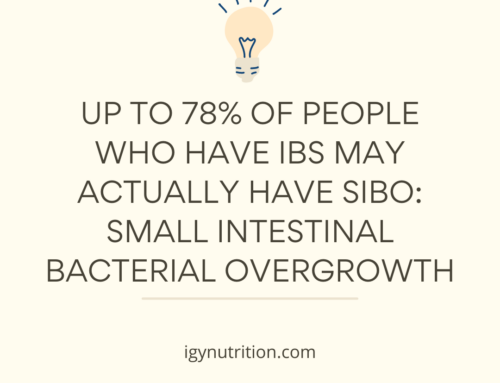In 2015, the global retail market value of probiotics was $41 billion, and those supplement sales are projected to grow 37% globally by year 2020.
As research continues to explore the link between the gut and overall health, new delivery forms emerge, and consumer awareness grows, the probiotic category keeps expanding.
However, there is still a lot of confusion around the different kinds of probiotics on the market. In fact, many consumers may not be aware that all probiotics are not created equal, and many different strains can actually result in different effects on the microbial balance, consequently effecting their health in distinct ways.
The popular methods of changing the gut composition by adding beneficial flora have shown promise for improving GI symptoms and overall health, which is why probiotics and prebiotics have dominated much of the consumer market and research focus.
However, consumers should be aware that probiotics are strain-specific and may not always address the unique imbalances which vary from person to person.
After all, each individual’s microbiome is home to a distinct array of bacteria, so a strain that benefits consumer A isn’t guaranteed to improve the digestive problems of consumer B, making it difficult to pinpoint which probiotics are truly effective.
Luckily, research in the digestive health category is advancing quickly and has led to the development of symptom-specific probiotics, so that consumers are actually able to purchase products targeted to their unique needs.
For example, there are products that target gas, bloating, immune health, skin health, vaginal health, etc.
Nevertheless, one should be aware that this research is in its infancy and therefore should not expect an instant resolution of symptoms, but rather an improvement in the balance of microbiota that will lead to a gradual enhancement in overall health.
Because researchers have only studied a handful of probiotic strains such as Bifidobacterium, Lactobacillus, and F. prausnitzii, the physiology and metabolic capabilities of the majority of the “healthy” microbial organisms of our gut have yet to be studied. [1,2]
Therefore, regardless of the desired outcome, it may be wise to be sure that your probiotic contains at least these examined strains.
If you have a specific health issue that you are attempting to address with probiotics, you may want to consult a healthcare professional to be certain that you include a strain that has been shown to address the issue in well-controlled research.
Lastly, the effective dose of probiotics for any strain has not yet been definitively identified. This is mainly due to the fact that dosage is influenced by many variables such as health endpoint, the specific probiotic used, whether you are taking a pill or a food or a powder, and more.
These factors make it difficult to generalize one optimal dose for probiotic effects. Therefore, it is always best to consult your healthcare practitioner if you have a specific issue you are trying to manage.[3]
In conclusion, probiotics have received a lot of attention in the digestive supplement market, but there is still much left to discover concerning their efficacy and how they impact our health.
While symptom-specific probiotics present a new and exciting frontier in addressing individuals’ health issues, consumers should do their homework to make sure that the strains on the label have been scientifically tested to support the target issue.
Read the next Gut Busters here: “Only Yogurt contains Probiotics”
References:
1. B. Sánchez, S. Delgado, A. Blanco-Míguez, Aná. Lourenço, M. Gueimonde, A. Margolles, Mol. Nutr. Food Res. 2016, 1600240.
2. Sánchez, B., De Los Reyes-Gavilan, C. G., Margolles, A., Gueimonde, M., Probiotic fermented milks: present and future. Int. J. Dairy Technol. 2009, 62, 472–483.
3. Ouwehand, AC. A review of dose-responses of probiotics in human studies. Benef Microbes. 2016 Dec 23:1-10. doi: 10.3920/BM2016.0140. [Epub ahead of print]
#microbiota #bacteria #microbiome #beneficialbacteria #probiotics #gutflora #gut #guthealth #strains #microbes #bifidobacterium #lactobacillus #Fprausnitzii



